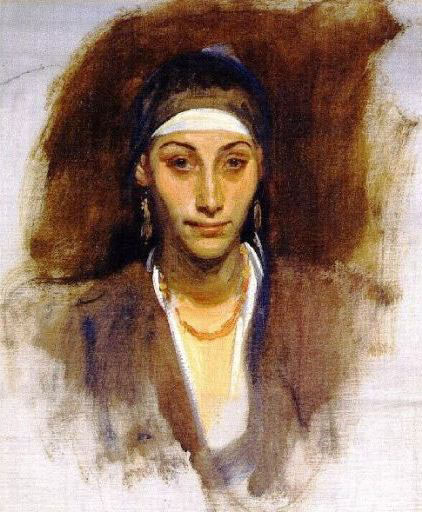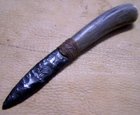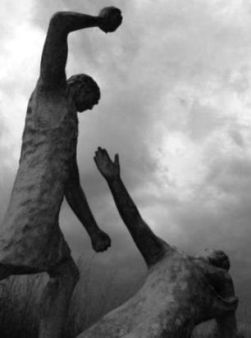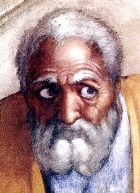Who was Dinah & what was her story?
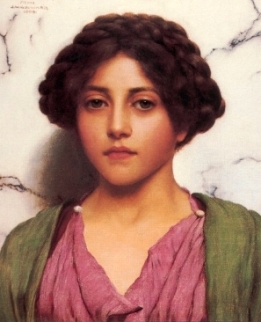
- The young girl Dinah is seized and raped by Shechem.
- Shechem tries to atone. He falls in love with Dinah and offers to marry her. He also offers compensation to her family.
- Jacob accepts the young man’s attempt at reconciliation, but his sons do not. They plan to murder Shechem and all the men of the city.
- Dinah’s brothers massacre the men of the city, including Shechem, and enslave the women and children. Dinah’s fate is unknown.
The Rape of Dinah
Dinah was the daughter of Leah, the unloved wife of the tribal leader Jacob. Jacob had always preferred his other wife Rachel, even though Leah seems to have been a loving wife and gave her husband many children.
From the start, therefore, Dinah may have felt that she was unloved by her father, the very man who should have loved her.
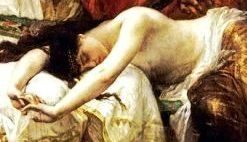 At the time of this story, she must have been very young – about fourteen years, since she was born after Leah’s four sons. Even though young, she was considered to be of marriageable age.
At the time of this story, she must have been very young – about fourteen years, since she was born after Leah’s four sons. Even though young, she was considered to be of marriageable age.
The Bible story describes how Dinah went out to visit some women. She cannot have been alone when she left the pitched tents of her family and went into the city.
She seems to have been confident enough of her safety to move freely among the the Canaanite women of the region -relations with Canaanites were friendly, and the women of both peoples considered themselves to be safe.
Women at this time seem to have been relatively free to move around – think of Rachel and Rebecca, who move around in public without any apparent problems.
What happened to Dinah?
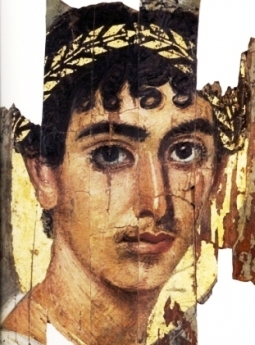 Without giving any details of where she was or how it happened, the Bible simply says that Shechem, the son of the local ruler, took hold of her and and had sexual intercourse with her by force.
Without giving any details of where she was or how it happened, the Bible simply says that Shechem, the son of the local ruler, took hold of her and and had sexual intercourse with her by force.
There was
- seeing
- desiring and
- taking
just as there was with the forbidden fruit in the Garden of Eden, where the pattern for sin had begun.
But did Shechem take Dinah by force?
There is much debate about this. Scholars argue that the words in the Bible text could mean something quite different: that Shechem had intercourse with her without following due procedure, without the correct formalities.
He and Dinah had sex without first having a marriage ceremony, and so Shechem has treated her as a harlot. He should have first approached her family and asked for her hand in marriage.
Because this has not been done, the girl and her family have been humbled, dishonored.
Shechem falls passionately in love
Now love complicates what would otherwise be the simple story of a violent crime.
Shechem declared that he has fallen passionately in love with Dinah. He told her this, and he told anyone who would listen to him. He loved her tenderly – the words of the story imply longing, yearning, tenderness, not the usual feelings of a rapist.
He has injured her terribly – loss of virginity meant the loss of a future for any young girl. Nevertheless, he now tries to woo her, and he also tells his father Hamor he wished to marry her, and asked his father to help.
Dinah’s feelings are not recorded, so we have no way of knowing what they were.
Attempt at reconciliation
Jacob is told that his daughter has been defiled. The word used to describe the action implies someone who is impure because they have a skin disease, or have touched something dead and are ritually unclean. It does not mean sinful, but it does mean exclusion from the tribe until cleanness is restored.
Because of Shechem’s action, Dinah is an outcast.
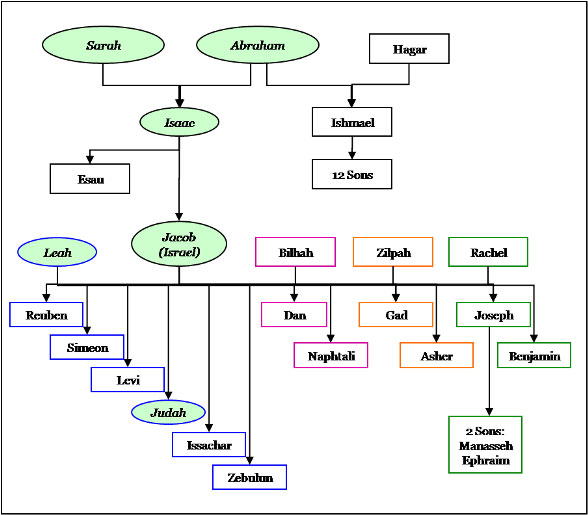
Lineage tree of the descendents of Sarah and Abraham. No mention of Dinah…
Jacob does not send for his sons, but waits for them to come home from the fields. Nothing is said about Jacob’s feelings, or about what he thinks.
Years later, when his son Joseph is apparently killed by wild animals, Jacob’s grief is terrible: he tears his clothes, wails, refuses to be comforted.
In this situation however, where his daughter is raped, he is quiet, keeping his counsel until his sons come back.
Hamor, father of Shechem, arrives at the same time the sons do.
An offer of marriage
When Dinah’s brothers heard what had happened, they were very angry. The verb used to describe their emotion is the same as the word used to describe God’s grief when he sees what humanity has become, before the Flood (Genesis 6:6)
Hamor tries to placate them by telling them his son loves Dinah, and wants to marry her. Their relationship will be based on loyalty and trust, he implies. He speaks respectfully, and carefully includes the brothers in his discussion, making them a generous offer:
- marriage links between the two families, and full citizenship rights
- an invitation to Jacob’s family to settle permanently in the region, acquire property and intermarry with his own people
- the prospect of trade, with the same privileges given to Hittite merchants in foreign lands.
But he is in a difficult position, to say the least -trying to convince the father and brothers of a molested girl that the perpetrator will make a good husband.
Shechem makes a further offer
After his father has finished speaking, Shechem makes another offer: to give any marriage present they want, if he can marry Dinah. Referring to her, he uses the word ‘maiden’.
Referring to her, he uses the word ‘maiden’.
Why? It is technically incorrect, as he well knows, but it is an attempt to show respect for her – perhaps rather clumsy, but well-meant.
The sons of Jacob are not mollified:
- Shechem has injured their sister and dishonored their family
- he has done what ‘ought not to be done’, gone against the norms of social ethics.
But worse than this in their eyes is the fact that he now seems to be offering to give them financial gain through the rape of their sister.
In trying to repair the situation, Shechem and Hamor have made it worse.
Circumcision
There is deep anger in the hearts of Dinah’s brothers, and they want justice, not compensation. They set out to deceive Shechem and his father.
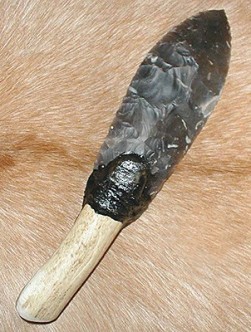
Stone knife with bone handle – a common tool in ancient times
They ask that Shechem and all the able-bodied men of in his territory, all the men capable of going out to fight in an emergency, be circumcised.
They seems unaware or unconcerned that they are demeaning the Covenant, and the significance of circumcision. They say that if the men of the city will agree to circumcision they will agree to the marriage, and will go so far as to settle there.
Shechem agrees. He is the eldest son of his family, next in line to rule the city of Shechem, so all the men the city agree to be circumcised. He does not have to explain the reason for this uncomfortable operation: everyone knows what has happened.
Jacob’s sons attack
Three days later, when all the recently circumcised men are still in pain, two of Dinah’s brothers, Simeon and Levi, enter the unguarded city and attack the newly-circumcised men.
They know this is the opportune time, since the third day after circumcision is the most painful, and is also the time when a fever is likely. The men of the city will be unable to retaliate. Simeon and Levi kill every able-bodied man in the city, including Shechem and his father Hamor.
They must have been accompanied by many of their tribesmen, because two men alone could not massacre so many, disabled or not.
Scholars have suggested that the massacre may have been carried out by all the brothers, but the curse Jacob put on them and their tribes in Genesis 49:5-7 is directed at Simeon and Levi alone:
‘Simeon and Levi are brothers; weapons of violence are their swords.
May I never come into their council; may I not be joined to their company –
for in their anger they killed men,and at their whim they hamstrung oxen.
Cursed be their anger, for it is fierce,and their wrath, for it is cruel!
I will divide them in Jacob,and scatter them in Israel.’
They take Dinah out of Shechem’s house, where she has been living
- for how long?
- has she been there all the time?
- has the marriage already happened?
The Bible leaves these questions unanswered.
Massacre
Now the other brothers of Dinah join in, plundering the city. They steal the flocks and herds, donkey, and whatever produce they can carry.
They then take all the women and children in the city, and make them slaves.
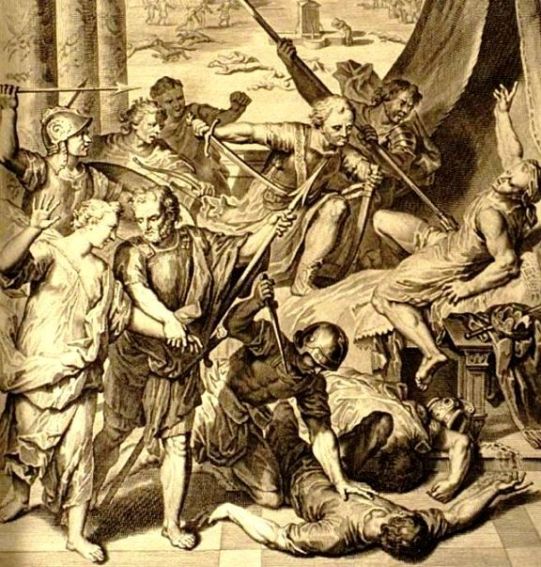
Simeon and Levi murder the Sichemites; Jacob forces Dinah to watch
At the beginning of the story, Dinah is seized and dishonored. Now at the end, all the enemy’s belongings are seized and dishonored.
It is over-retaliation, and it prompts the Bible’s command to limit retribution to ‘an eye for an eye, a tooth for a tooth’. Only retribution in kind may be taken if an injury has been suffered.
Who was right? Jacob, or his sons?
Jacob is angry, as well he might be. He tells Simeon and Levi they have brought trouble on him. Now everyone will hate them and try to kill them.
His anger is stoked not by any ethical consideration, but by the fear that they have become pariahs who will be hunted down by allies of the city they have attacked. He rebukes his sons for backing out of the agreement they had with the people of the city – but hasn’t he himself used duplicity all his life to get what he wants? He does not like it when his sons do the same.
The brothers respond: should they have let their sister be treated like a whore? A whore receives financial advantage for sex, and they reproach Jacob for suggesting that the honour of the family can be restored by favours from the people of Shechem.
They call Dinah ‘our sister’ rather than ‘your daughter’ – a reproach to their father.
Jacob does not respond. There is really no answer he can give.
Perhaps the most disturbing thing is that, through it all, Dinah’s voice is not heard.
Names in Dinah’s story
Dinah means ‘she who has been judged and found innocent’. She was the daughter of Jacob and Leah
Shechem means ‘shoulder’ or ‘saddle’, the shape of mountains encircling ancient Shechem. He was the son of Hamor the Hivite.
Hamor was the ruler of the city of Shechem
Jacob means ‘he who grabs for something’ – either his brother’s heel at the moment of birth, or his brother’s inheritance later on
Main themes of the story
- Once a sin is committed, it cannot be undone, no matter how you try. Dinah’s brothers are right about this.
- The lesson is: think before you act. Ask yourself: what are the long-term consequences of your actions?
The Bible text
1 Now Dinah the daughter of Leah, whom she had borne to Jacob, went out to visit the women of the region;
2 and when Shechem the son of Hamor the Hivite, the prince of the land, saw her, he seized her and lay with her by force. 3 And his soul was drawn to Dinah the daughter of Jacob; he loved the maiden and spoke tenderly to her.
4 So Shechem spoke to his father Hamor, saying, “Get me this maiden for my wife.”
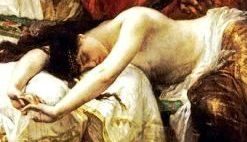 5 Now Jacob heard that he had defiled his daughter Dinah; but his sons were with his cattle in the field, so Jacob held his peace until they came. 6 And Hamor the father of Shechem went out to Jacob to speak with him.
5 Now Jacob heard that he had defiled his daughter Dinah; but his sons were with his cattle in the field, so Jacob held his peace until they came. 6 And Hamor the father of Shechem went out to Jacob to speak with him.
7 The sons of Jacob came in from the field when they heard of it; and the men were indignant and very angry, because he had wrought folly in Israel by lying with Jacob’s daughter, for such a thing ought not to be done.
8 But Hamor spoke with them, saying, “The soul of my son Shechem longs for your daughter; I pray you, give her to him in marriage. 9 Make marriages with us; give your daughters to us, and take our daughters for yourselves. 10 You shall dwell with us; and the land shall be open to you; dwell and trade in it, and get property in it.”
11 Shechem also said to her father and to her brothers, “Let me find favor in your eyes, and whatever you say to me I will give. 12 Ask of me ever so much as marriage present and gift, and I will give according as you say to me; only give me the maiden to be my wife.”
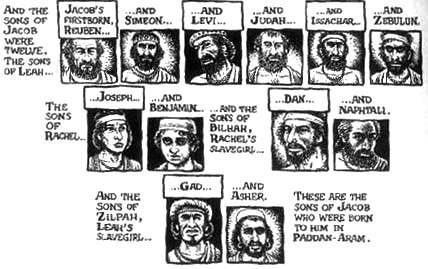
The sons of Jacob, by his two wives and their two handmaidens
13 The sons of Jacob answered Shechem and his father Hamor deceitfully, because he had defiled their sister Dinah. 14 They said to them, “We cannot do this thing, to give our sister to one who is uncircumcised, for that would be a disgrace to us.
15 Only on this condition will we consent to you: that you will become as we are and every male of you be circumcised. 16 Then we will give our daughters to you, and we will take your daughters to ourselves, and we will dwell with you and become one people. 17 But if you will not listen to us and be circumcised, then we will take our daughter, and we will be gone.”
18 Their words pleased Hamor and Hamor’s son Shechem. 19 And the young man did not delay to do the thing, because he had delight in Jacob’s daughter. Now he was the most honored of all his family.
20 So Hamor and his son Shechem came to the gate of their city and spoke to the men of their city, saying, 21 “These men are friendly with us; let them dwell in the land and trade in it, for behold, the land is large enough for them; let us take their daughters in marriage, and let us give them our daughters.
22 Only on this condition will the men agree to dwell with us, to become one people: that every male among us be circumcised as they are circumcised. 23 Will not their cattle, their property and all their beasts be ours? Only let us agree with them, and they will dwell with us.”
24 And all who went out of the gate of his city hearkened to Hamor and his son Shechem; and every male was circumcised, all who went out of the gate of his city.
25 On the third day, when they were sore, two of the sons of Jacob, Simeon and Levi, Dinah’s brothers, took their swords and came upon the city unawares, and killed all the males. 26 They slew Hamor and his son Shechem with the sword, and took Dinah out of Shechem’s house, and went away.
27 And the sons of Jacob came upon the slain, and plundered the city, because their sister had been defiled; 28 they took their flocks and their herds, their asses, and whatever was in the city and in the field; 29 all their wealth, all their little ones and their wives, all that was in the houses, they captured and made their prey.
30 Then Jacob said to Simeon and Levi, “You have brought trouble on me by making me odious to the inhabitants of the land, the Canaanites and the Per’izzites; my numbers are few, and if they gather themselves against me and attack me, I shall be destroyed, both I and my household.”
31 But they said, “Should he treat our sister as a harlot?”

Bible Study Resource for Women in the Bible: Dinah, the raped daughter of Jacob and Leah
Bible Study Resource
© Copyright 2006
Elizabeth Fletcher

